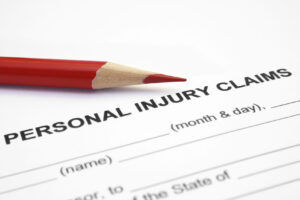
Accidents happen when you least expect them—and when they do, the aftermath can be overwhelming. Between medical bills, missed work, physical pain, and emotional stress, it’s natural to have questions about your rights and what steps to take next. That’s where understanding personal injury law becomes essential.
Whether you were injured in a car accident, hurt by a defective product, or affected by medical negligence, this guide will provide clear, straightforward answers to the most common questions you may have after being injured due to someone else’s negligence.
What Is a Personal Injury Case?

A personal injury case is a legal claim brought by someone who has been harmed by the negligence, wrongdoing, or intentional act of another person or entity. The aim of a personal injury claim is to obtain compensation for losses resulting from that harm.
These cases often involve collisions, medical malpractice, defective products, premises liability, and other scenarios in which the responsible party’s actions (or failures) caused an injury.
What Kinds of Personal Injury Cases Are There?
There are various types of personal injury cases, including those involving:
- Car crashes
- Truck accidents
- Motorcycle accidents
- Product liability
- Wrongful death
- Nursing home negligence
- Workplace injuries
- Slip and fall accidents
Each situation is different, so consulting with an experienced attorney is key to determining your legal options after being injured by someone else.
How Do I Know if I Have a Valid Claim?
Most personal injury cases arise from negligence. This typically means you must prove that negligence occurred in order to recover damages.
To establish negligence, four elements must generally be proven:
- Duty of Care — The other party owed you a duty. For example, drivers must follow traffic laws, and doctors must meet the standard of care.
- Breach of Duty — That duty was violated.
- Causation — The breach caused your injury.
- Damages — You suffered measurable losses, such as medical bills, lost wages, or pain and suffering
An experienced lawyer can review the details, gather evidence, and determine whether negligence can be proven.
What Types of Compensation Can an Accident Victim Recover?
Accident victims may recover economic damages for financial losses and non-economic damages for the emotional harm suffered.
Economic damages may include:
- Medical bills
- Rehabilitation or physical therapy
- Lost income
- Loss of future earning capacity
- Property damage
- Out-of-pocket expenses
Non-economic damages may include:
- Pain and suffering
- Emotional distress
- Loss of enjoyment of life
- Scarring and disfigurement
- Loss of consortium
- Mental anguish
Understanding the full range of damages available in a personal injury case is essential to ensuring you receive fair compensation for everything you’ve lost. Every injury has both financial and emotional impacts, and a thorough claim should reflect both. An experienced Indiana personal injury attorney can evaluate your situation, document your losses, and pursue the full compensation you may be entitled to under the law.
How Much Does It Cost to Hire a Personal Injury Lawyer?
Most Indianapolis personal injury attorneys work on a contingency fee basis, meaning you pay no upfront fees. Instead, the lawyer receives an agreed-upon percentage of your settlement or verdict only if they win your case.
This arrangement allows you to pursue justice without financial risk. Be sure to review the fee agreement carefully and ask about potential additional expenses such as court filing fees, expert witness costs, and medical record retrieval.
Can I Still Recover Compensation if I’m Partially at Fault for My Accident?
Under Indiana’s modified comparative fault rule, if you are found to be less than 51% at fault, you can still recover damages—but your total compensation will be reduced by your share of the blame. If you are 51% or more at fault, Indiana law bars you from recovering any damages.
Determining fault isn’t always straightforward. Insurance companies often try to assign as much blame as possible to injured victims to reduce what they must pay. An experienced attorney can investigate the accident, gather witness statements, consult experts, and counter unfair fault claims to protect your right to full compensation.
How Long Do I Have to File a Personal Injury Lawsuit in Indiana?
In Indiana, you typically have two years from the date of the accident or injury to file a lawsuit. If you fail to take legal action before this deadline, you may lose your right to seek compensation.
It’s essential to act quickly. Evidence fades, witnesses move, and insurance companies may take advantage of delays. Consulting an attorney early allows your legal team to preserve vital records, conduct a thorough investigation, and file your lawsuit on time.
Contact the Indianapolis Personal Injury Lawyers at Wilson Kehoe Winingham Injury Lawyers for a Free Consultation
Being injured because of another person’s negligence is stressful and life-changing, but you don’t have to navigate the recovery process alone. Understanding how Indiana personal injury law works empowers you to make informed decisions, pursue fair compensation, and hold the responsible party accountable.
If you or a loved one has been seriously injured in Indianapolis, Indiana, Wilson Kehoe Winingham Injury Lawyers offers experienced and compassionate representation. Our legal team has 124 years of combined experience. We are committed to helping clients rebuild their lives and recover the compensation they deserve.
For more information, contact us today at (317) 920-6400 for a free consultation with an experienced Indianapolis personal injury attorney.
